Paul's story
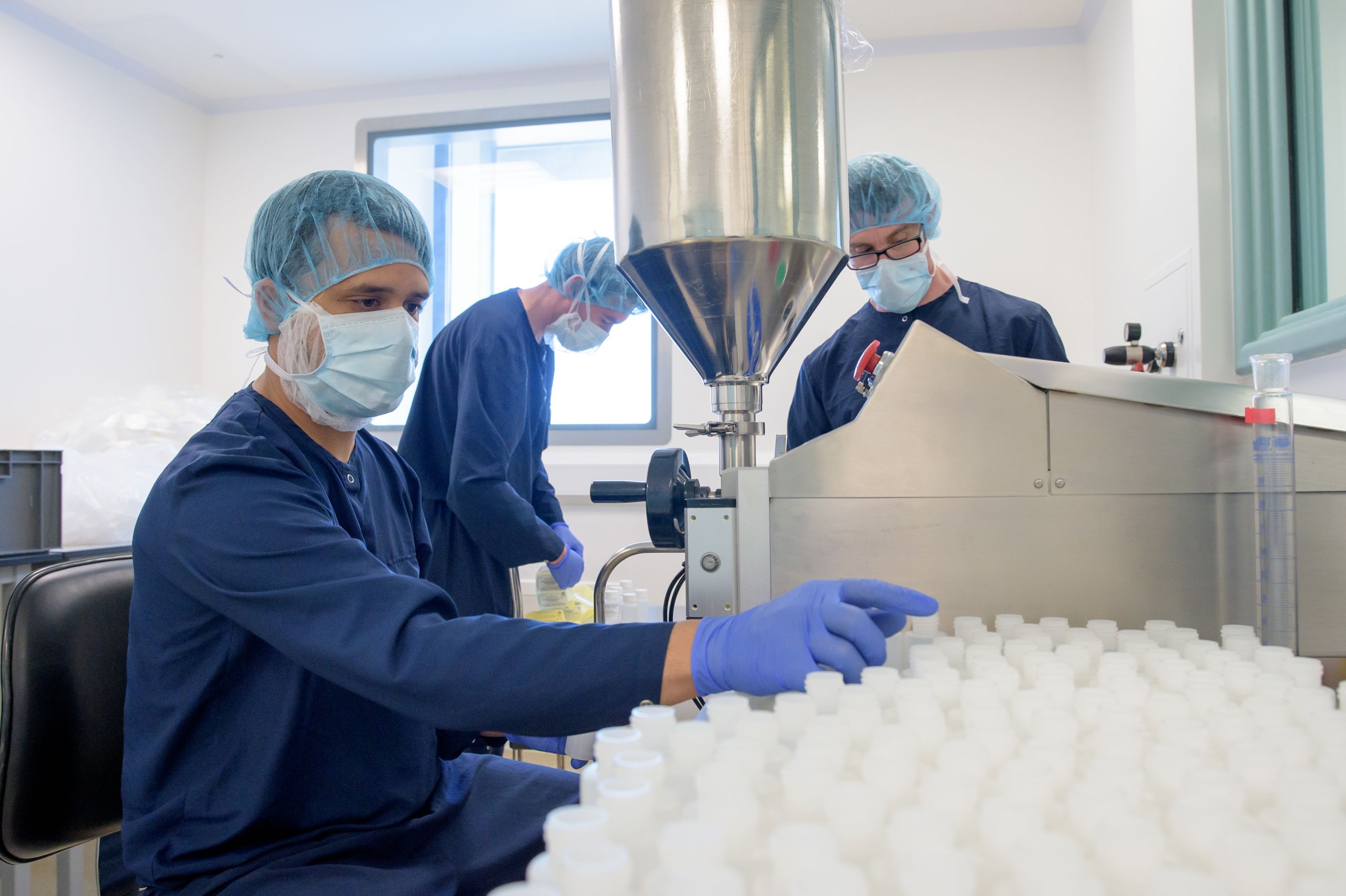
Paul Tunstell,
Associate Chief Pharmacist
“We ordered 1,300 litres of alcohol which is highly combustible. It would have remodelled Guy’s Tower if it had gone up.”

“I never believed in a million years we would have to manufacture alcohol hand gel in the pharmacy. It’s not a medicine for a start. There was a real shortage early in the crisis and the head of infection control asked us if we could do it.
It became our signature product. One of my proudest moments was walking into the front desk of the hospital and taking a squirt of Guy’s manufactured hand gel.We followed the WHO formula. We ordered 1,300 litres of alcohol and there was an issue of where to store it as it’s highly combustible. We are on the 13th floor of Guy’s Tower and it was said it would ‘re-model the tower’ if it went up. The views are great though. We were able to quickly arrange additional alcohol storage to ensure safety.
We needed plastic containers for the hand gel and there is a picture of a member of staff in a corridor with 8 enormous boxes packed with 19,000 of them. I think we still have some left. We are not making the 500ml bottles now but we still supply community nurses with the 50ml bottles. They find them really useful.
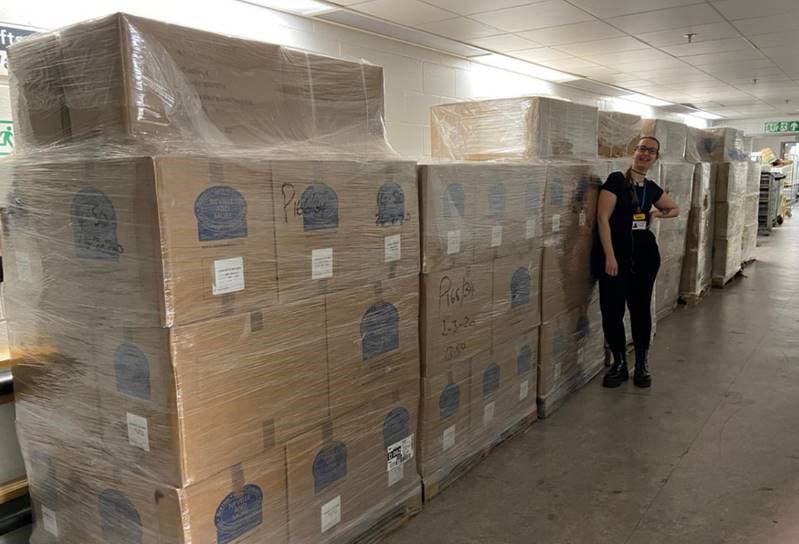
19,000 plastic containers for hand gel were delivered
19,000 plastic containers for hand gel were delivered
We have a large manufacturing unit at the Trust – 110 staff out of 450 in the pharmacy. We manufacture unlicensed medicines, clinical trial products, we make infusions and prepare syringes with sedatives, analgesics, anaesthetics and antibiotics. It frees the nurses to spend more time with the patients and reduces errors.
“There was a shortage of haemofiltration solution for patients with kidney problems. We devised a formula, trialled it, tested it and made 880 bags.”
The big influx of COVID-19 patients to intensive care changed our way of working. Medicines for intensive care pose particular challenges. They are often intravenous, there are issues of compatibility, how they affect patients with kidney problems or liver problems, when they may not clear the drugs so well.
We normally have 4 teams covering different specialties but the normal work of the hospital stopped. We established one team – called the One Team – and prepared for the worst. We had to support the Nightingale as well, where they were planning for up to 4,000 critical patients.
We were facing a big increase in demand in one part of the pharmacy and a collapse in demand in other areas. The challenge was how to move people around so they didn’t feel left out.
There were fears of shortages. We made some ICU medicines in pre-filled syringes – buying in the powder and mixing it with water. Then there was a shortage of haemofiltration solution for patients with kidney problems. We devised a formula, trialled it, tested it and made 880 bags in the end.
Outpatients was closed but patients still needed medicines. We didn’t want them coming in to collect them so we worked with Lloyds Pharmacy to courier or post them to patients’ homes. That was hugely appreciated. We are looking at how to continue it.
One thing we have learnt is the benefits of doing things at scale. Why make a product 3 times when you can do it in greater quantity once? We have a machine that fills syringes in batches of 200-300. We realised that is not enough and went up to 500. But that means we need more space to make, check pack and store them. The Trust has agreed to give us extra space. That will be a legacy of COVID-19.
I was frustrated that some of what we made wasn’t used. The likely demand put to us was far higher than it turned out. There was a lot of planning for the worst case and that created a lot of stress. Of course it was better to plan and it not happen, than the other way round. There was disappointment about the products we sent to other places that weren’t used. We got them back and that has to be a good thing that they weren’t needed, but that added to the work.
A good thing that has come out of COVID-19 is that a manufacturing cell was set up to co-ordinate the supply of our special medicines nationally – that was a really positive move.”
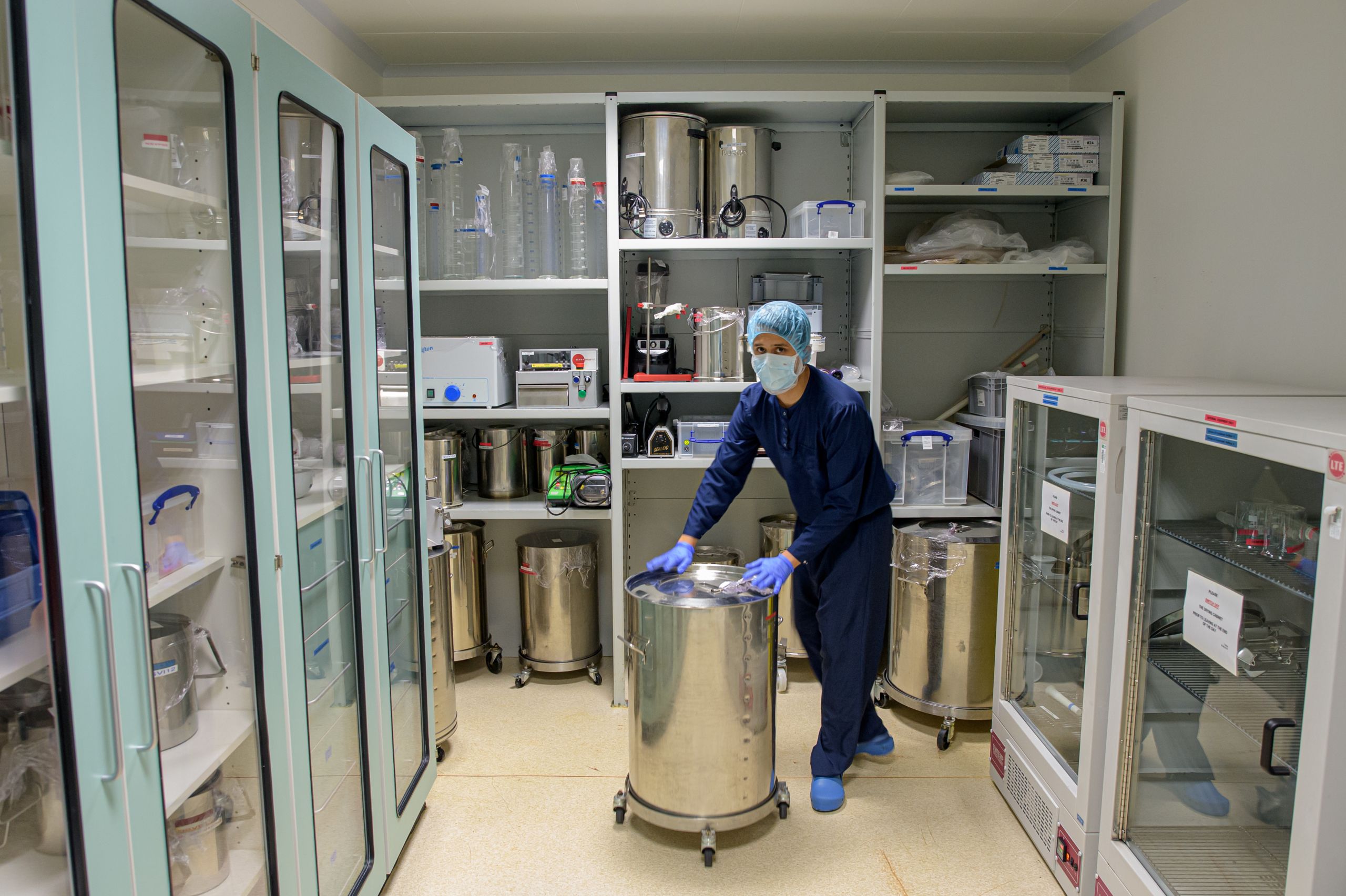
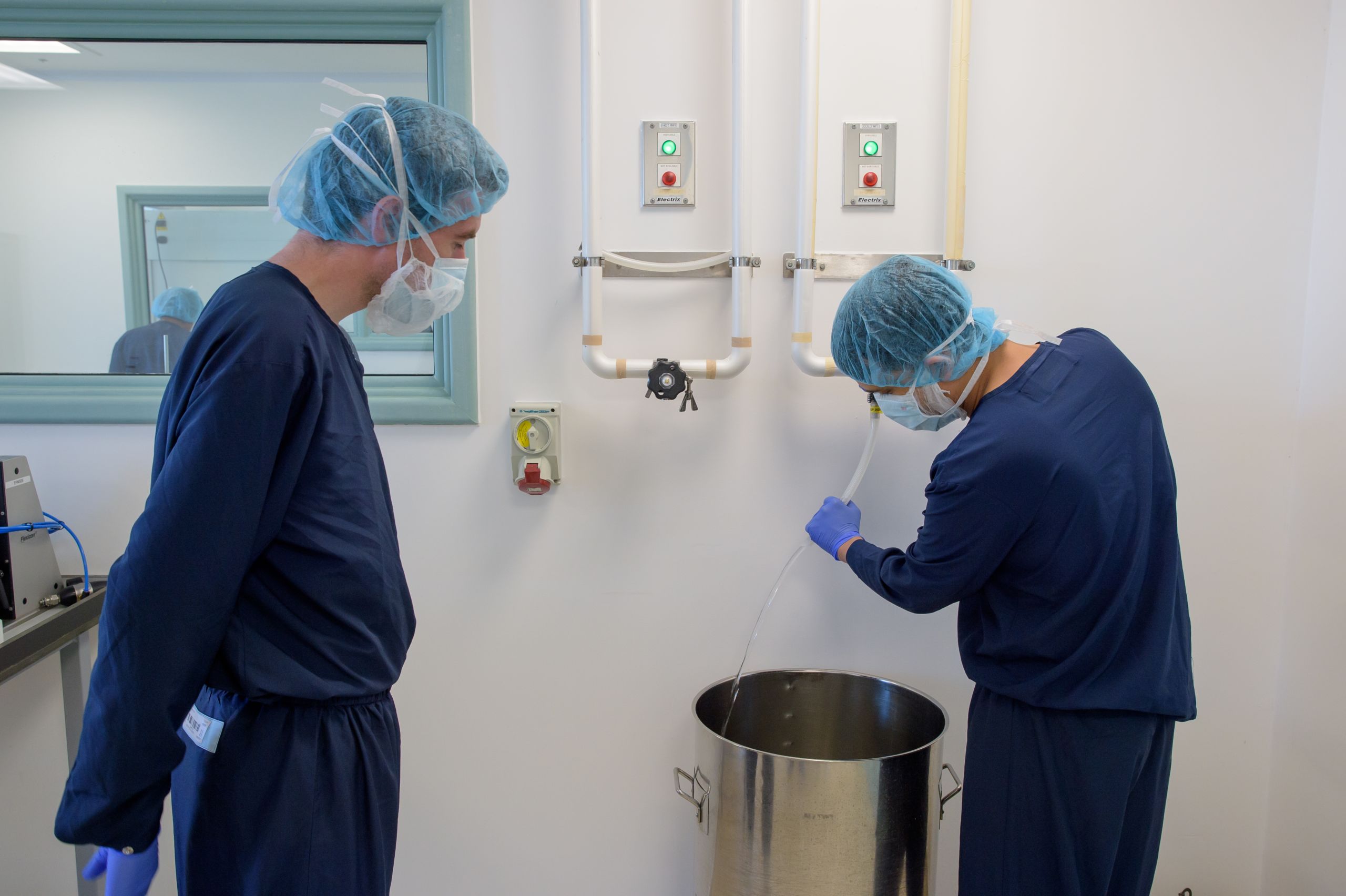

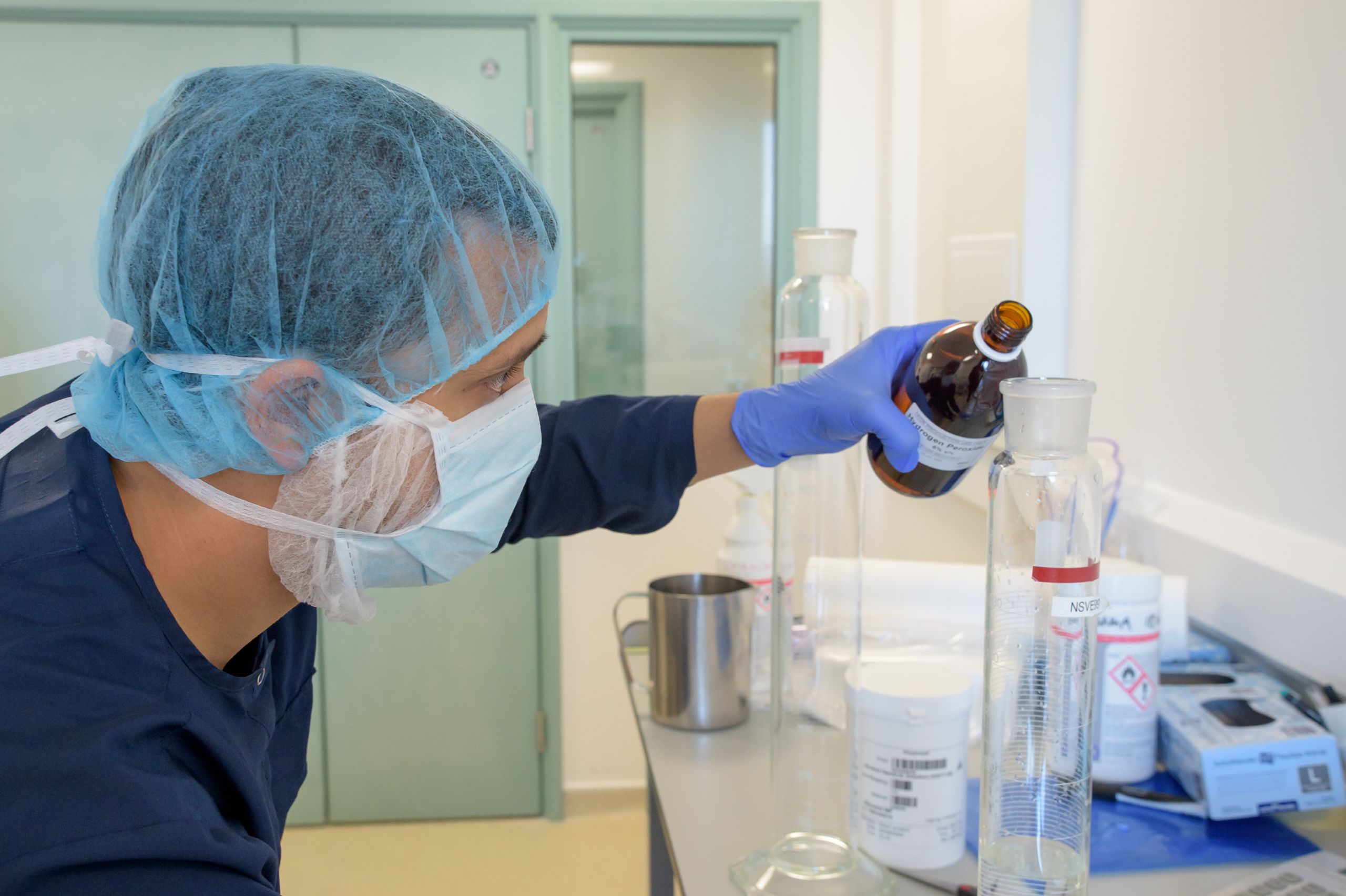

Read more stories

